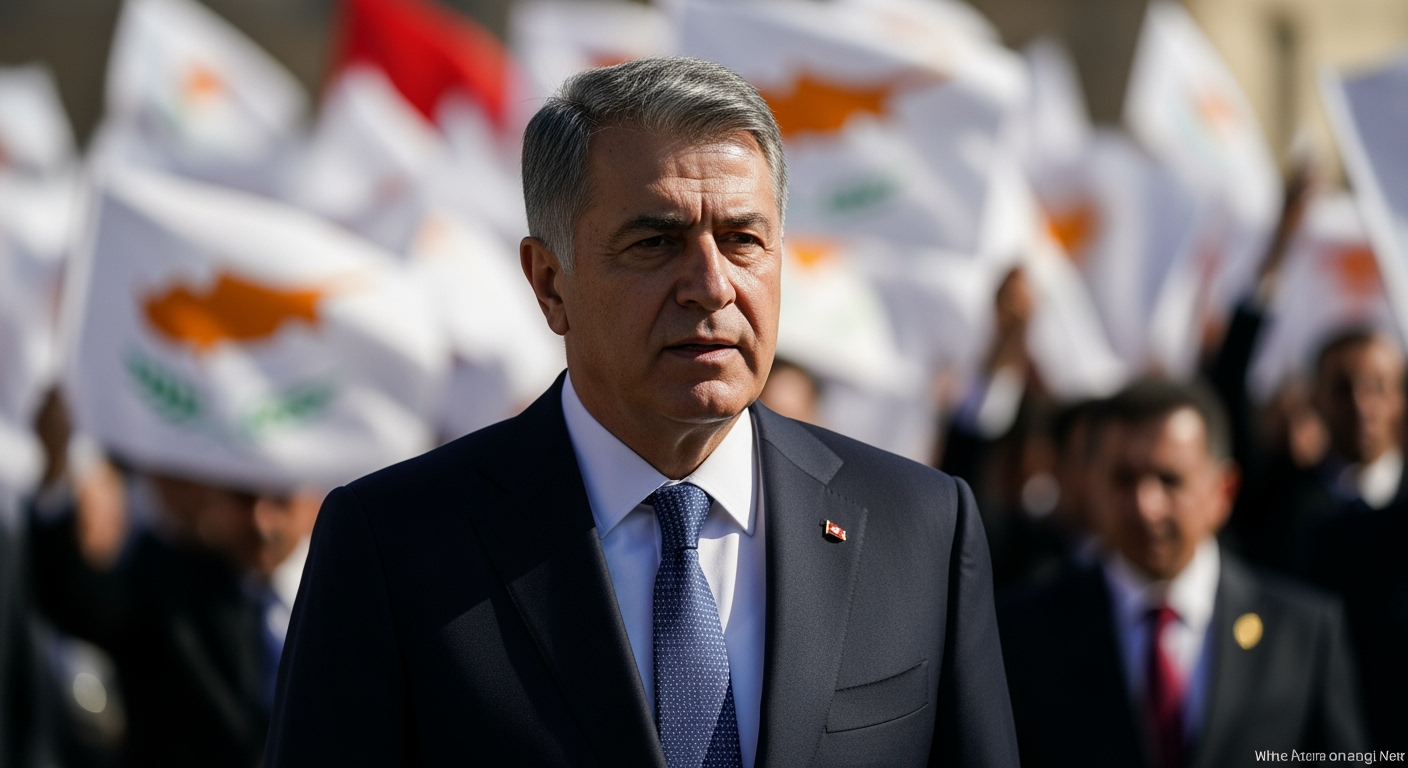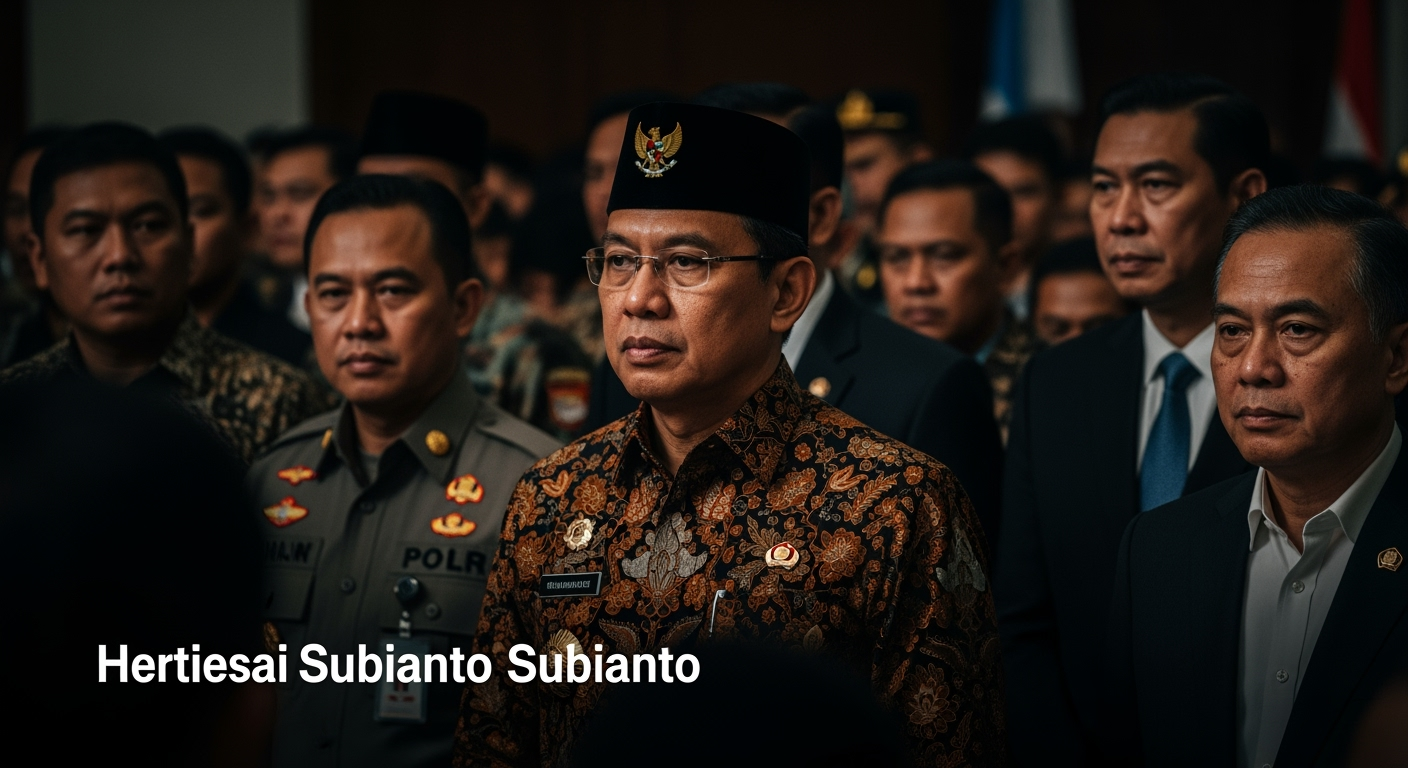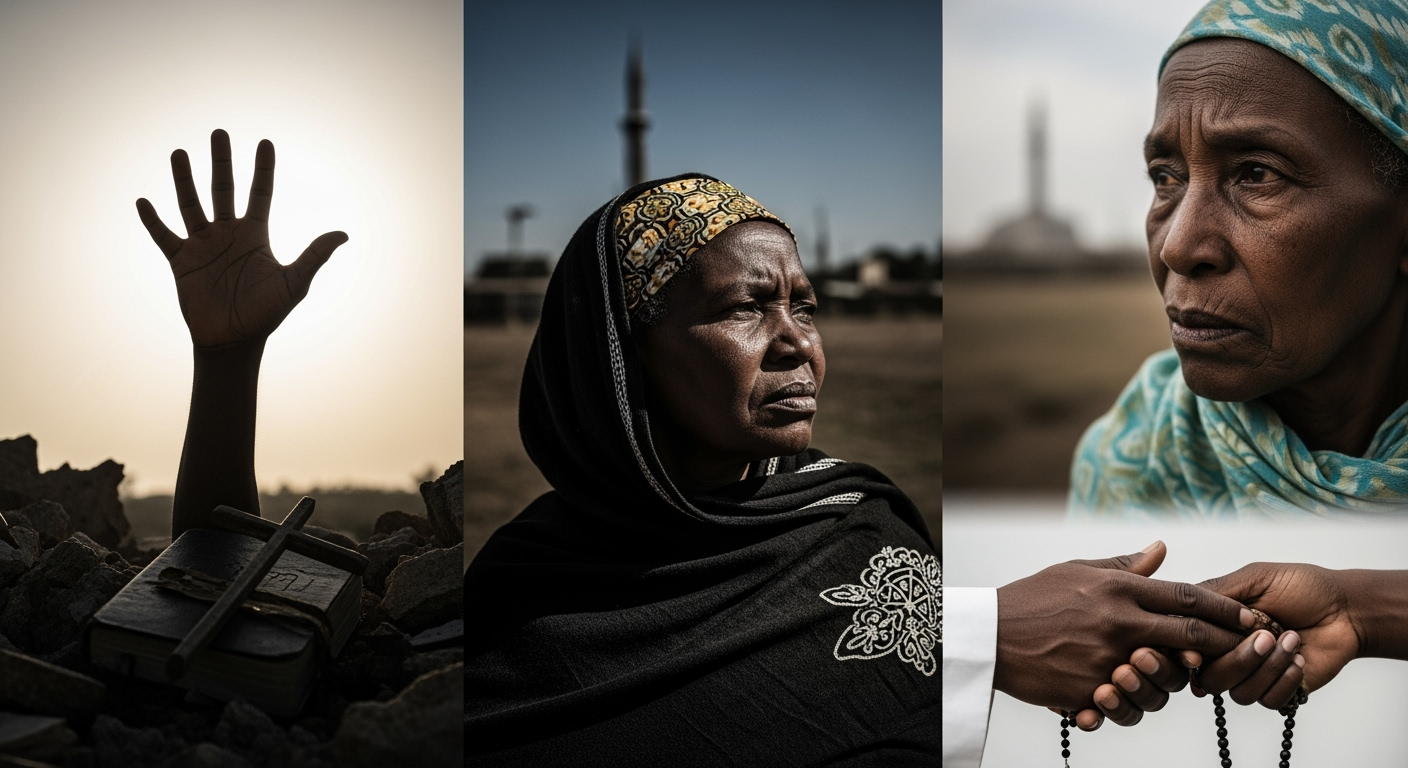Related Articles

Turkish Cypriots Elect Erhürman in Landslide, Sending Complex Signals to Ankara

China Navigates Critical Economic Crossroads with Ambitious New Five-Year Plan





Abuja, Nigeria – A fierce debate rages over the characterization of the relentless violence plaguing Nigeria, with some international voices and advocacy groups asserting a "Christian genocide," while others, including the Nigerian government and numerous analysts, contend the narrative oversimplifies a multifaceted crisis driven by a complex interplay of socioeconomic, political, and security factors. This clash of narratives highlights the profound human suffering across the nation and the challenge of crafting effective solutions amidst differing interpretations of the conflict's root causes.
Reports from various organizations paint a grim picture of targeted violence against Nigeria's Christian population. Since the turn of the 21st century, an estimated 62,000 Nigerian Christians have been killed by groups such as Boko Haram, Fulani herdsmen, and other militants, leading some to refer to these killings as a "silent genocide". Intersociety, a civil-society watchdog, reported that more than 7,000 Christians were killed in Nigeria during the first 220 days of 2025 alone, averaging 35 deaths per day, with an additional 7,800 abducted in the same period. Another report indicated that between 2019 and 2023, nearly 17,000 Christians were killed in targeted attacks due to their faith, alongside approximately 7,800 kidnappings within the first seven months of 2025.
Advocacy groups like Open Doors state that more Christians are killed for their faith in Nigeria than anywhere else globally, with statistics showing over 3,100 Christians killed and 2,830 kidnapped in the previous year. These attacks, often described as shockingly brutal, include the destruction of homes, churches, and livelihoods, leading to the displacement of millions, predominantly Christian farmers. The violence, once concentrated in the Muslim-majority northern states, has reportedly spread southward into the Middle Belt and beyond, where Christian communities are particularly vulnerable. Incidents like the massacre of over 50 parishioners in St. Francis Xavier Church in Owo in June 2022, and the killing of at least 300 Christians in Plateau State around Christmas 2023, underscore the severity of the attacks. International figures, including U.S. Senator Ted Cruz and the Canadian Parliament, have amplified the "Christian genocide" narrative, urging stronger international action and accountability for Nigerian officials perceived to be complicit through weak policing or enforcement of blasphemy laws.
While acknowledging the severe suffering of Christians, many Nigerian officials and security analysts argue that framing the crisis as a "Christian genocide" is overly simplistic and distorts the complex reality on the ground. They contend that violence in Nigeria is driven by a confluence of factors including land disputes, resource scarcity, climate change, population growth, weak governance, and opportunistic criminal activities, affecting both Christian and Muslim communities. Data from Nigeria's National Security Tracker indicates that both faiths have been victims of massacres and reprisals, suggesting that the conflict is not exclusively a religious war.
The Nigerian government has consistently rejected the "genocide" label, with officials like the Senior Special Assistant to the President on Research and Analytics arguing that such claims manipulate long-standing ethnic and resource-based tensions for sectarian agendas. They emphasize that terrorist groups like Boko Haram and the Islamic State West Africa Province (ISWAP) indiscriminately target anyone who opposes them, regardless of faith, including moderate Muslims, government institutions, and even mosques. The Muslim Rights Concern (MURIC) has accused Christian groups of "deceiving the world" by claiming only Christians are killed, noting that 32,000 Muslims were reportedly killed by terrorist attacks in the north over three years. The conflict has been described as a "war on Nigerians," not solely on Christians, waged by extremists who target anyone outside their narrow ideological fold.
The primary perpetrators identified in Nigeria's violence include Boko Haram, ISWAP, and armed Fulani herdsmen. Boko Haram, active since 2009, aims to establish an Islamic state and has been responsible for widespread atrocities, particularly in the North-East, displacing millions. ISWAP, a splinter group, also wages a violent insurgency, targeting Christians and others. Recent attacks attributed to Boko Haram in Borno State in late 2024 and early 2025 displaced thousands of Christians, destroying churches and homes, and reportedly demanding conversion to Islam.
In the Middle Belt, conflicts often involve predominantly Muslim Fulani herdsmen and largely Christian farmers. While these clashes are frequently cast in religious terms, experts point to underlying issues of land ownership, grazing routes, and diminishing resources. The Fulani Ethnic Militia (FEM), which includes armed Fulani herdsmen, is attributed with a significant proportion of murders of Christians, accounting for 42% of civilian killings between 2019 and 2023, according to the Observatory of Religious Freedom in Africa (ORFA). However, the U.S. State Department's 2022 report on international religious freedom noted that "reducing the violence in the center of the country to sectarian confrontation is an extreme simplification," as similar conflict dynamics exist in regions where both farmers and herders are Muslim. Criminal gangs, operating across regions, also contribute significantly to the insecurity through kidnappings for ransom and armed robberies, further blurring purely religious motivations.
The Nigerian government faces persistent criticism for its perceived inability or unwillingness to effectively curb the violence and protect all citizens. Some analyses suggest that the government's failure to condemn the violence or effectively neutralize extremist movements has strengthened militants' influence. Despite security operations and efforts to promote interfaith dialogue, attacks continue with alarming frequency. In some northern states, the enforcement of Sharia law, including blasphemy provisions, has also raised concerns, leading to the prosecution and imprisonment of individuals, including Christians, Muslims, and humanists.
The international community, particularly the United States, has engaged in debates over Nigeria's designation as a "Country of Particular Concern" (CPC) for religious freedom violations. While Nigeria was designated a CPC in December 2020, this was revoked the following year, a decision criticized by some lawmakers. U.S. human rights monitors, such as the USCIRF, continue to highlight ongoing religious freedom violations, emphasizing the government's slow response to attacks by non-state actors and the enforcement of blasphemy laws. However, Nigerian authorities often view such external pressure and narratives as potentially undermining domestic efforts and misrepresenting the situation, sometimes attributing them to foreign agendas that exploit internal divisions.
The tragic human cost of Nigeria's violence is undeniable, whether it is labeled a "Christian genocide" or a multi-faceted crisis. While evidence strongly indicates that Christians have disproportionately borne the brunt of targeted attacks by certain extremist groups, reducing the entire conflict to a singular religious persecution narrative risks overlooking critical underlying factors and the suffering of Muslim communities caught in the crossfire. The debate over terminology reflects a deeper struggle to comprehend and address a crisis interwoven with religious, ethnic, economic, and political complexities. Effective solutions will likely require a comprehensive approach that moves beyond simplistic labels, focusing on improved governance, equitable resource distribution, justice, and security for all Nigerians, irrespective of their faith. The ongoing violence demands a nuanced understanding to foster lasting peace and stability in Africa's most populous nation.